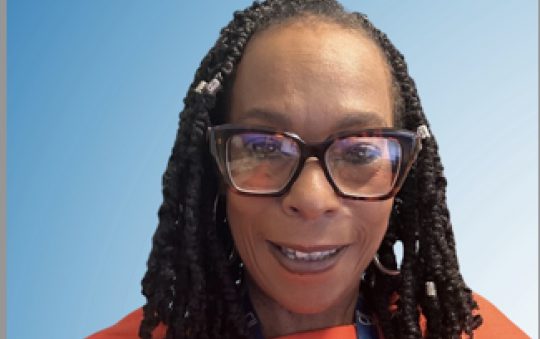
On Friday, May 2nd, 2022, I had just returned to Los Angeles from a girl’s trip to Colombia with my two daughters in their twenties. As wonderful as our vacation was, we were all glad to be home, but we immediately noticed the vibe wasn’t right.
As we walked, tweets from Black Twitter began endlessly buzzing notifications. Emails with subject lines mentioning in some form or another that “women’s rights are gone.” All thoughts of a warm welcome home ended abruptly. As my daughters and I looked at each other, we knew a war for our bodies had begun.
That Friday morning was the day the United States Supreme Court leaked the draft opinion that would overturn Roe v. Wade, crippling reproductive freedom across the nation. In short, the full range of reproductive services that organizations like Planned Parenthood Los Angeles (PPLA) provide, including prenatal care, contraception, cancer screening, and STD treatment, were all under attack.
As a nurse practitioner for Planned Parenthood Los Angeles Black Health Initiative, I see how these decisions impact our bodies and futures. Every day I provide patients with the care they need to ensure that women are empowered with the freedom to make their own choices concerning their futures and reproductive health. We must drastically change healthcare in the Black community, particularly to address Black women’s reproductive health.
I often hear my brothas and sistas in our communities saying, “We have no say,” “Voting doesn’t make a difference,” or “My vote doesn’t count.” I’m letting Black women AND men know today that our vote counts more than ever, especially at the local level. According to the Center for American Progress, Black women are among the largest and most consistently engaged demographic groups in American politics nationwide. The overturning of Roe vs. Wade has only generated more energy among female voters, especially in California.
CalMatters.org reports that the number of female lawmakers could rise above California’s current record of holding 39 of 120 seats. This is an opportunity to ensure that Black women use our influence to empower legislators to make laws that protect all women in California. So not only do we have a say in California state laws, but our votes also influence how these laws are enforced because we are voting for mayors, police chiefs, and district attorneys.
The bottom line is that we know Black women and other women of color have consistently faced overwhelming financial, institutional, and social obstacles in obtaining reproductive healthcare. This year’s Supreme Court rulings have led to restrictive reproductive health laws in many states criminalizing pregnancies by people of color.
We have to advocate for our bodies, our choices, and the protection of our sisters’ and daughters’ choices to plan the lives they will lead. The only way to ensure these rights is to wake up early, amplify our voices through social media, and make November 8th a family event by showing up to vote.
So, my question to you is, what will you be doing on November 8, 2022? Let me tell you what my daughters and I won’t be doing. We won’t be missing our opportunity to cement a fundamental right to reproductive freedom and the right to choose or refuse contraceptives in California, which Proposition 1 protects.
To learn more about Prop 1 and other important California Propositions, please visit https://calmatters.org/california-voter-guide-2022/propositions/. To register to vote or check your registration status, visit https://registertovote.ca.gov/
Kara James is and a nurse practitioner for the Planned Parenthood Los Angeles Black Health Initiative.






